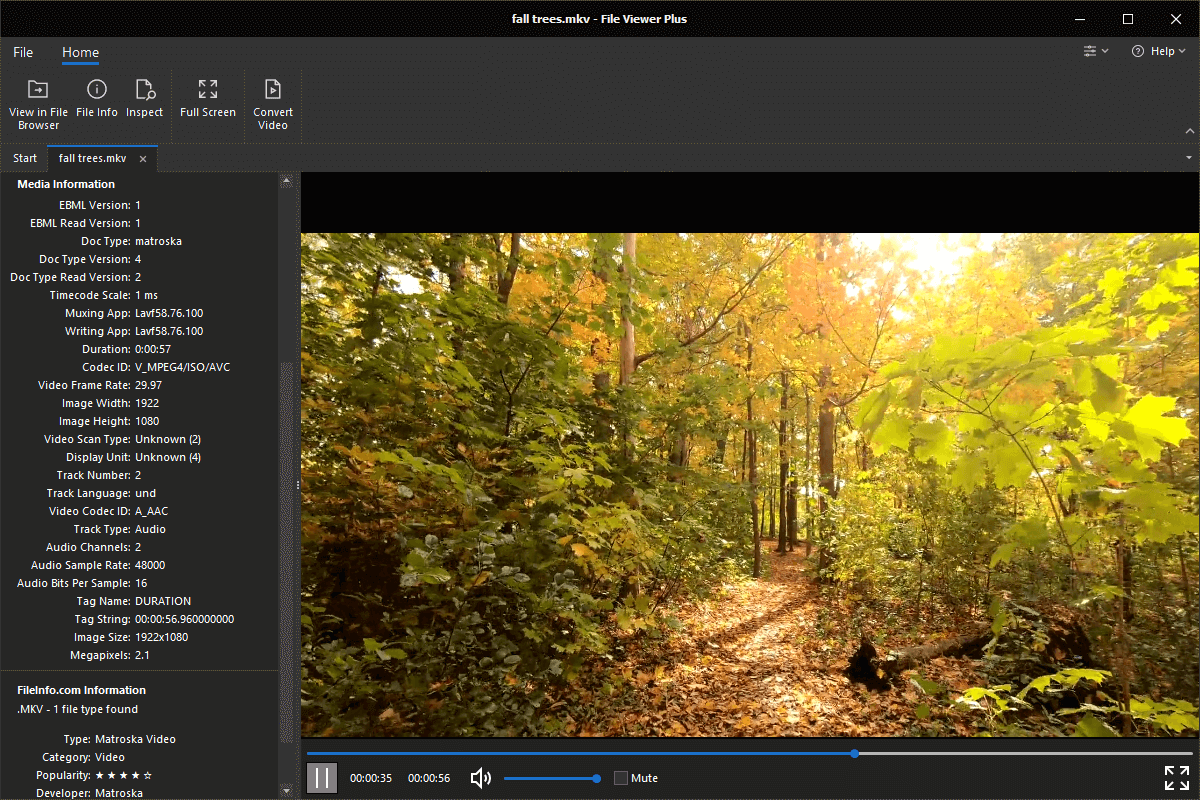In today's digital era, mastering various file formats is essential for efficient multimedia management. Among the most versatile and widely adopted formats is the MKV file. If you've ever encountered an MKV file and wondered about its nature, functionality, and widespread popularity, you're in the right place. This detailed guide will explore everything you need to know about MKV files, empowering you to harness their full potential effectively.
Matroska Video files, commonly known as MKV, have become highly favored due to their adaptability and capacity to consolidate multiple media streams into one file. Unlike conventional video formats, MKV offers more than just video and audio. It supports subtitles, chapters, and metadata, making it a top choice among video enthusiasts.
Whether you're a casual user aiming to play MKV files or a professional delving into advanced editing techniques, this thorough guide will cover all aspects of MKV files. From grasping the fundamentals to learning how to convert and edit these files, we'll ensure you have all the tools and knowledge necessary to work with MKV files proficiently.
Read also:Understanding And Preparing For Severe Thunderstorm Warnings
Table of Contents
- What Are MKV Files?
- The Evolution of MKV Files
- Why Choose MKV Files?
- Potential Drawbacks of MKV Files
- Playing MKV Files
- Converting MKV Files
- Editing MKV Files
- MKV File Compatibility
- Security Considerations for MKV Files
- The Future of MKV Files
- Subheading: Best Practices for MKV Files
- Subheading: Common FAQs About MKV Files
What Are MKV Files?
An MKV file, short for Matroska Video, is a widely recognized multimedia container format designed to encapsulate an unlimited number of video, audio, picture, or subtitle tracks into a single file. The name "Matroska" originates from the Russian word for a type of nesting doll, symbolizing its ability to hold multiple elements within one cohesive file.
MKV files are extensively used because they offer unmatched flexibility compared to other formats like MP4 or AVI. They support various codecs, ensuring compatibility with most contemporary devices and software. Moreover, MKV files are open-source, enabling anyone to contribute to their development, making them a dependable option for users globally.
The Evolution of MKV Files
The MKV format was introduced in 2002 by the Matroska development team. Initially conceived as an alternative to existing video container formats, MKV swiftly gained popularity due to its advanced features and open-source nature.
Over time, the MKV format has advanced to accommodate a broad range of codecs, including H.264, H.265, and VP9, making it a preferred choice for high-quality video streaming and storage. Its adaptability to new technologies and user needs has cemented its status as one of the most versatile video formats available today.
Why Choose MKV Files?
Here are some compelling reasons why MKV files are a popular choice:
- Flexibility: MKV files can store multiple video, audio, and subtitle streams, making them perfect for intricate multimedia projects.
- Compatibility: They support a wide array of codecs, ensuring broad device and software compatibility.
- Open-Source: Being open-source, MKV files benefit from continuous community-driven improvements and updates.
- Metadata Support: MKV files can include metadata such as chapters, tags, and cover art, enriching the user experience.
These features make MKV files a favored choice for both casual users and professionals alike.
Read also:Maximizing Your Success With Expert Bracket Picks For The 2025 Tournament
Potential Drawbacks of MKV Files
Despite their numerous advantages, MKV files do come with some challenges:
- Compatibility Issues: Some older devices and software may not support MKV files natively, necessitating conversion or additional software.
- File Size: MKV files can be larger than other formats due to their capacity to store multiple streams and metadata.
- Complexity: The advanced features of MKV files might be overwhelming for beginners, requiring additional learning and setup.
However, these drawbacks are often outweighed by the benefits, especially for users who prioritize quality and flexibility.
Playing MKV Files
Top Media Players for MKV Files
Playing MKV files is effortless with the appropriate media player. Here are some of the best options:
- VLC Media Player: A free, open-source player that supports MKV files natively.
- Kodi: A robust media center application capable of handling MKV files seamlessly.
- MPC-HC: A lightweight player specifically tailored for Windows users.
Ensure your media player is up-to-date to avoid any compatibility issues when playing MKV files.
Converting MKV Files
Essential Tools for Converting MKV Files
Converting MKV files to other formats is crucial for compatibility with specific devices or software. Here are some popular tools:
- HandBrake: A free, open-source tool for converting MKV files to MP4 and other formats.
- FFmpeg: A command-line tool offering advanced conversion options for MKV files.
- Online Converters: Websites like CloudConvert provide user-friendly interfaces for converting MKV files online.
Always ensure the tool you choose is reputable and secure to safeguard your files from potential threats.
Editing MKV Files
Editing MKV files demands specialized software capable of handling their intricate structure. Programs like MKVToolNix and Avidemux are excellent choices for editing MKV files. These tools enable you to:
- Add or remove tracks
- Edit metadata
- Split or merge files
With the right software, you can tailor your MKV files to suit your specific requirements.
MKV File Compatibility
MKV files are compatible with most modern devices and software, but exceptions may arise. To ensure smooth playback, consider the following:
- Check if your device supports MKV files natively.
- Install the latest firmware or software updates.
- Use a compatible media player or converter if necessary.
Being informed about compatibility issues can help you avoid potential playback problems.
Security Considerations for MKV Files
While MKV files themselves are secure, downloading or opening files from unreliable sources can pose risks. To protect yourself:
- Download MKV files exclusively from reputable websites.
- Use antivirus software to scan files before opening them.
- Avoid clicking on suspicious links or attachments.
Following these security practices will help ensure your MKV files are safe to use.
The Future of MKV Files
The future of MKV files is bright, with ongoing advancements in codec support and feature enhancements. As more devices and software adopt MKV as a standard format, its popularity is expected to increase further. With its open-source nature and community-driven development, MKV files will continue to evolve to meet the needs of users globally.
Best Practices for MKV Files
To maximize the potential of MKV files, consider these best practices:
- Utilize reliable software for playing, converting, and editing MKV files.
- Regularly update your media players and converters to ensure compatibility.
- Organize your MKV files with proper naming conventions and metadata.
Implementing these practices will help you manage your MKV files more efficiently.
Common FAQs About MKV Files
Here are some frequently asked questions about MKV files:
- Q: Can I play MKV files on my smartphone? Yes, many smartphones support MKV files through apps like VLC for Mobile.
- Q: Are MKV files larger than MP4 files? MKV files can be larger due to their capacity to store multiple streams and metadata, but this varies depending on the content.
- Q: Can I convert MKV files to DVD format? Yes, tools like HandBrake can convert MKV files to DVD-compatible formats.
Understanding these FAQs can help address common concerns about MKV files.
Kesimpulan
In summary, MKV files are a versatile and powerful format for storing and managing multimedia content. Their flexibility, compatibility, and open-source nature make them a favored choice for users globally. By comprehending the fundamentals of MKV files and adhering to best practices, you can utilize them effectively for various purposes.
We encourage you to explore the resources mentioned in this guide and share your experiences in the comments section below. Additionally, feel free to explore other articles on our site for more insights into digital media management. Together, let's continue learning and growing in the realm of multimedia technology!


